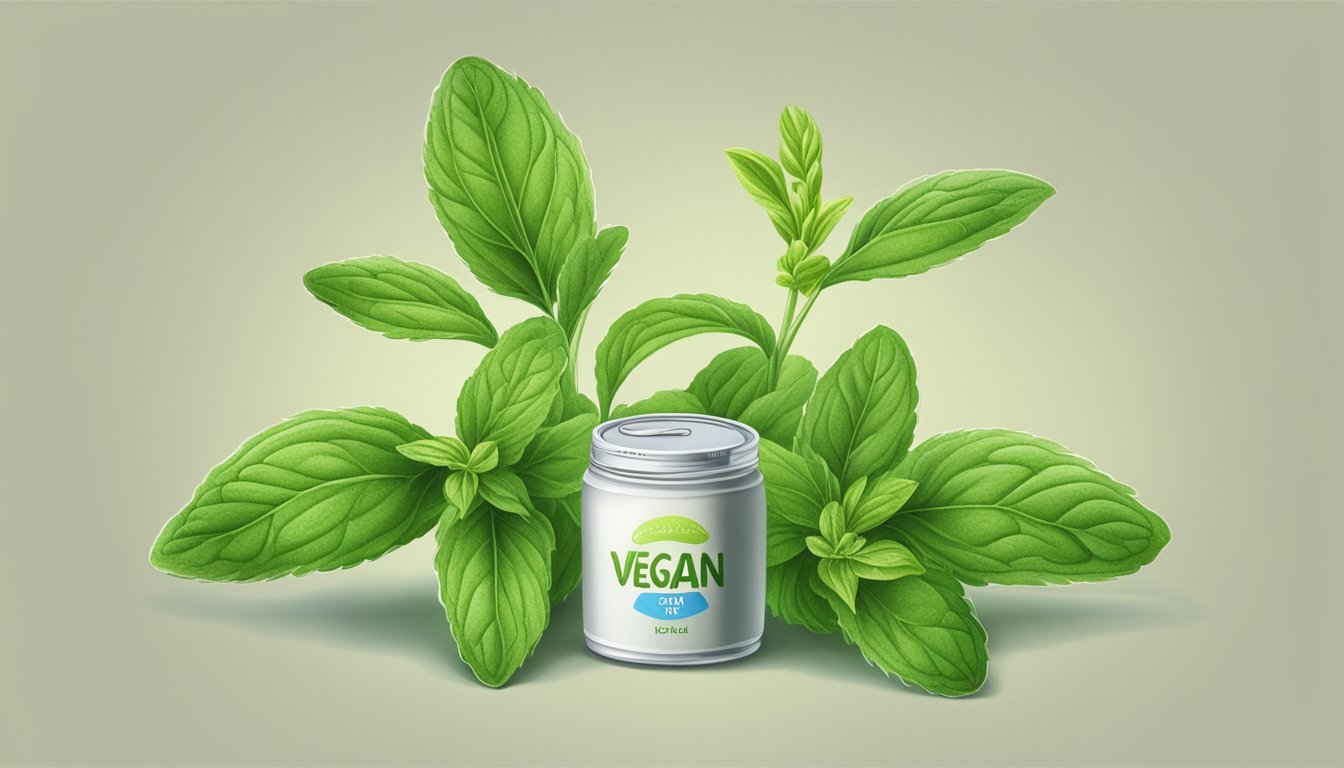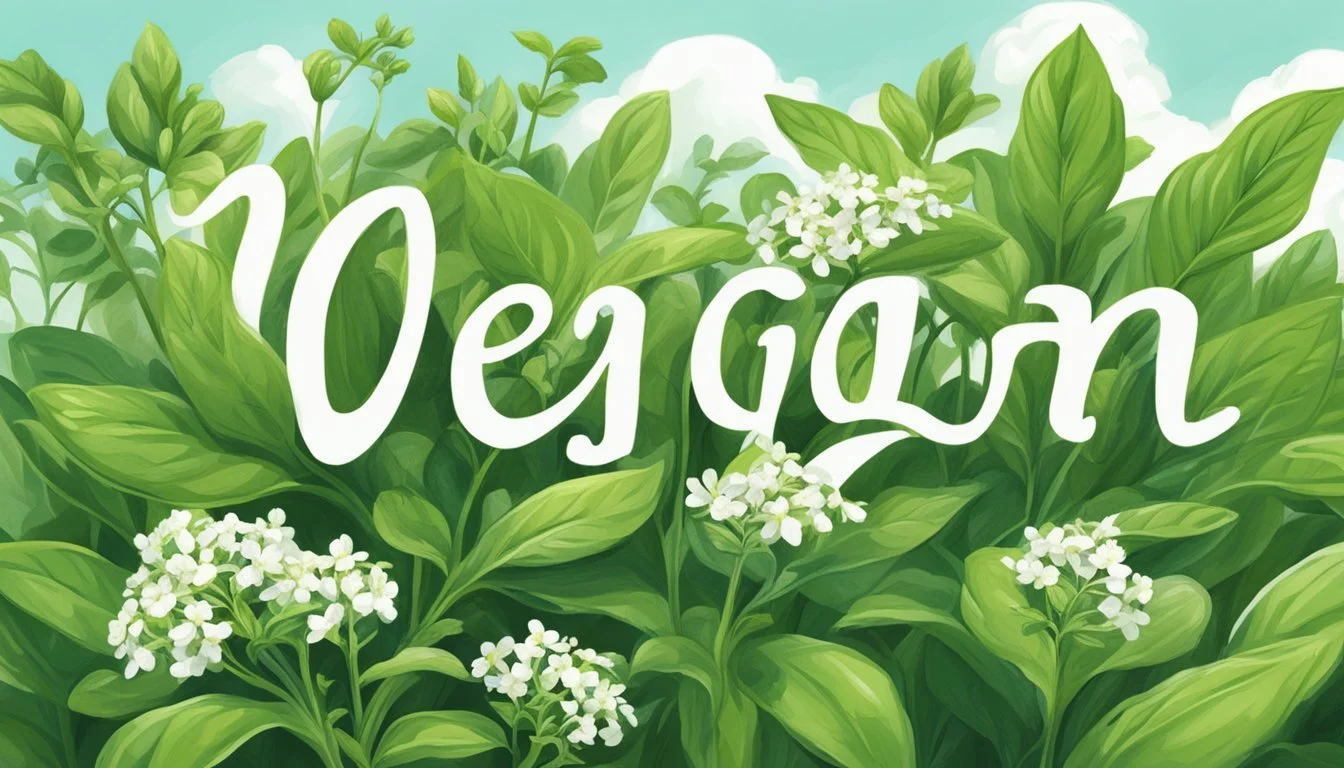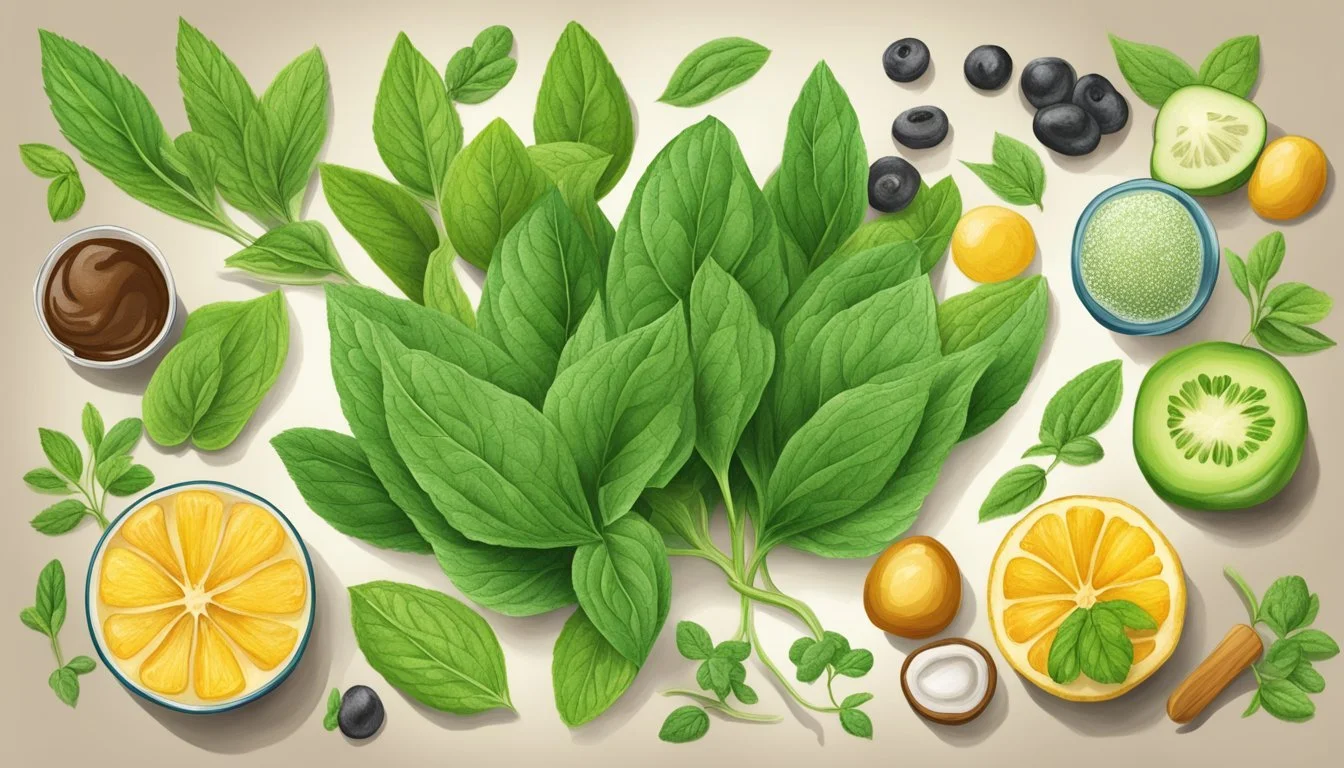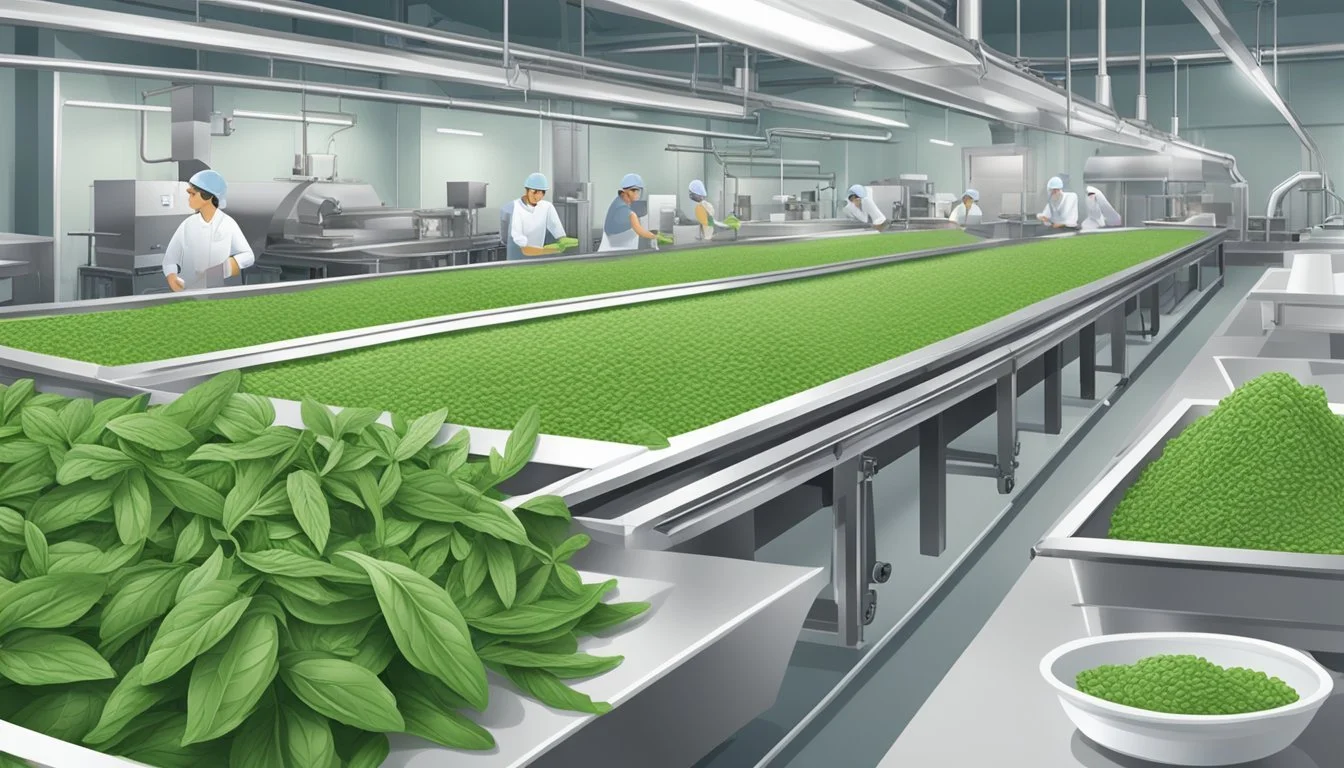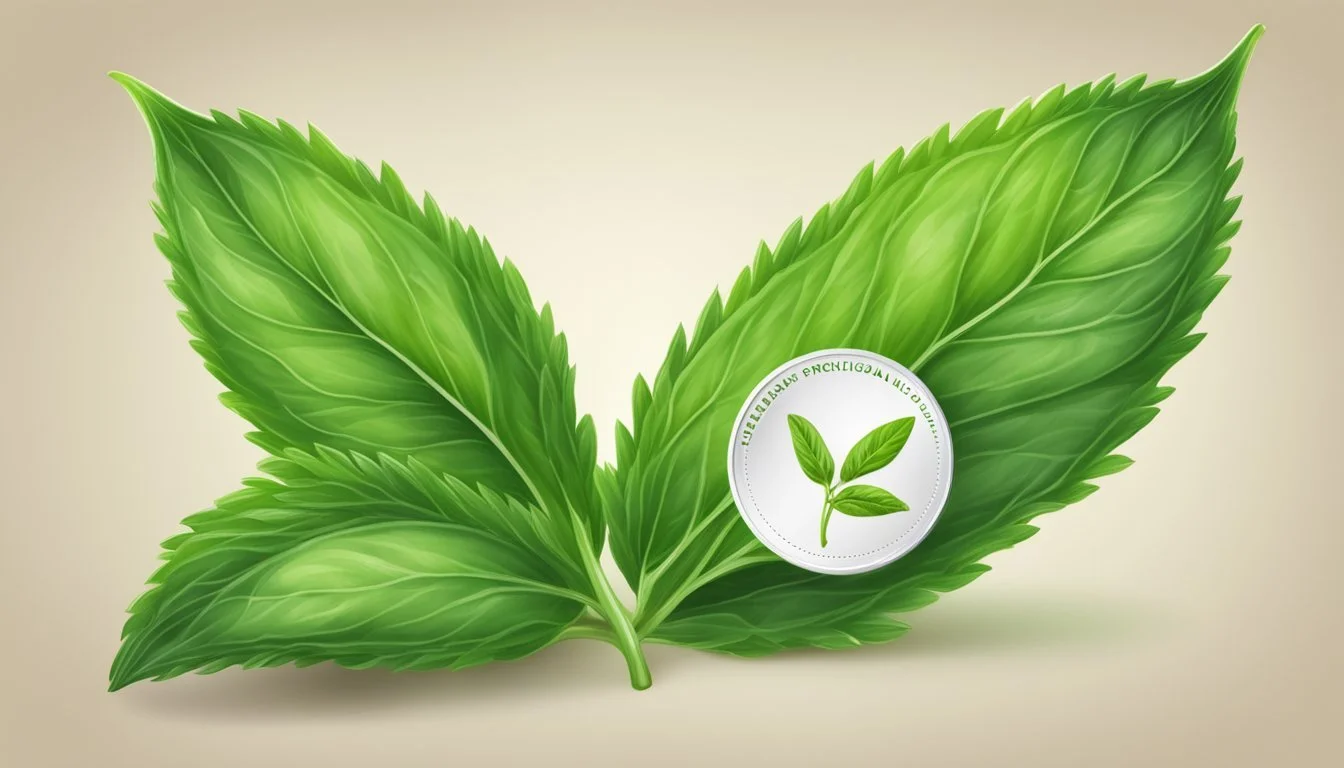Is Stevia Vegan?
Unveiling the Sweet Truth
Stevia stands out as a natural sweetener derived from the leaves of the Stevia rebaudiana plant and is often sought after for its no-calorie sweetness. Known for its distinctive taste profile, many people use stevia as a sugar substitute. Its plant-based origin logically leads to the conclusion that it is suitable for a vegan diet because it does not contain any animal products. However, it is important for vegans to be aware of various forms of stevia available on the market since some might be mixed with non-vegan ingredients or additives.
Vegan consumers should also consider the impact that the production and extraction processes of stevia might have on the environment and animals. While the stevia leaf itself is vegan, the industry practices associated with producing commercially available stevia could be less aligned with the ethics of stricter vegan individuals. It's recommended to always review the ingredients label carefully when purchasing sweeteners and to consider looking for certifications that may align with vegan and ethical standards.
In the realm of sweeteners, stevia has become a popular choice not only for individuals following a vegan lifestyle but also for those interested in reducing their caloric intake or managing their blood sugar levels. As with any product, the key for vegans is to verify the source and production processes of stevia sweeteners, to ensure they adhere to the strict vegan ethics related to animal welfare and environmental sustainability.
What Is Stevia?
Stevia serves as a natural sweetener derived from a plant, offering a calorie-free alternative to sugar. It's available in various forms, catering to different uses and preferences.
Botanical Origins of Stevia
Stevia rebaudiana is the botanical source of stevia, a perennial shrub native to South America. This plant, belonging to the Asteraceae family, has been used for centuries due to the natural sweetness of its leaves. Commonly referred to as sweet leaf or sugarleaf, Stevia rebaudiana's leaves are where the sweet compounds, integral to stevia-based sweeteners, are found.
Steviol Glycosides Explained
The sweetness of stevia comes from compounds known as steviol glycosides, primarily stevioside and rebaudioside. These molecules are up to 300 times sweeter than sucrose (table sugar), and they contribute zero calories when consumed, as the human body does not metabolize them for energy.
Forms of Stevia: Powder, Liquid, and Green Leaf
Stevia can be found in several forms:
Pure Stevia Extract: A fine white powder resulting from the purification of steviol glycosides.
Liquid Stevia: A solution made by steeping stevia leaves or mixing purified extracts with water, often with added glycerin or alcohol for stability.
Whole Leaf Stevia: The least processed form where the dried leaves are used directly. This form retains the natural green color and is less sweet compared to the extracts.
Each form offers a varying degree of sweetness and flavor profiles, making stevia a versatile addition to the market of natural sweeteners.
Is Stevia Vegan-Friendly?
Stevia is a non-caloric sweetener derived from the leaves of the Stevia rebaudiana plant. It is appreciated for its natural sweetness and is considered vegan-friendly as it contains no animal products or by-products in its purest form. Vegans can consume stevia with confidence that they are adhering to their dietary ethics.
The production process of pure stevia involves extracting the sweet compounds, known as steviol glycosides, from the plant leaves. This process does not incorporate any animal-derived substances. Furthermore, stevia in its natural leaf form is a plant product, which aligns with a vegan diet.
Ingredients and Alternatives
Pure Stevia Extract: Comprising primarily of Reb A (stevia extract), it is a common vegan-friendly sweetener.
Stevia Blends: Often contain other vegan-friendly sweeteners like erythritol or monk fruit.
Vegan Certification
While stevia itself is vegan, consumers may prefer products that are certified vegan as a guarantee that no animal products were involved at any stage of the manufacturing process. Certification also ensures that cross-contamination with non-vegan items is unlikely.
Vegans should always check labels, particularly with commercial stevia products that may include additional ingredients. Not all stevia-containing products may be certified vegan, and some could contain non-vegan elements like dextrose derived from animal sources.
In conclusion, stevia, in its pure form, is indeed vegan-friendly. Consumers looking for alternative sweeteners can rely on stevia as a natural option without concern for animal products. However, due diligence is encouraged when selecting commercial stevia blends or finished products containing stevia.
Health Considerations of Stevia
When considering stevia from a health perspective, it's important to assess its impact on blood sugar and diabetes, its zero-calorie nature relevant to weight management, and its overall safety, including potential side effects.
Benefits for Blood Sugar and Diabetes
Stevia is renowned for its ability to maintain stable blood sugar levels, making it a considerable choice for individuals with diabetes. Unlike regular sugar, stevia does not cause a rapid spike in blood glucose levels. This is particularly beneficial for those managing diabetes, as it can act as a safe sweetener alternative.
Blood Sugar: Does not significantly raise blood sugar levels.
Diabetes Management: Often recommended as a substitute for sugar in diabetic diets.
Weight Loss and Zero-Calorie Features
Stevia’s zero-calorie feature makes it an attractive sweetener for those looking to reduce calorie intake for weight loss. Because it contains no calories, stevia can be used to sweeten foods and beverages without adding to the total caloric load, thus supporting weight management efforts.
Caloric Information: Zero calories per serving.
Weight Loss: Can aid in reducing overall calorie consumption.
Safety and Potential Side Effects
The safety profile of stevia is generally favorable, as it is non-toxic and has been approved for use by various health organizations. However, as with many substances, stevia might have potential side effects for some individuals. These can range from mild allergic reactions to more complex effects when interacting with certain medications.
Safety: Recognized as safe for consumption by health authorities.
Side Effects: Potential mild allergic reactions in rare cases; advisable to consult with a healthcare provider if under specific medication.
Stevia in Food Processing
The transition from traditional sweeteners to stevia in the food industry emphasizes the demand for low-calorie, plant-based alternatives. This section explores stevia's application in baking and cooking, its comparison with other sweeteners, and the additives that are often mixed with commercial stevia products.
The Role of Stevia in Baking and Cooking
Stevia is primarily used for its sweetening properties in various culinary applications, especially as a sugar alternative in baking and cooking. Due to its high concentration of glycosides, which are the compounds responsible for its sweetness, stevia is hundreds of times sweeter than table sugar (sucrose). Consequently, it requires careful measurement to avoid excessive sweetness. In baking, stevia is often used in granulated or powdered form, but for liquid applications, such as dressings or beverages, liquid extract is preferred. It's essential for food processors to understand the interaction of stevia with other ingredients, as it may affect texture and browning reactions differently than cane sugar.
Comparing Stevia with Other Sweeteners
Stevia is celebrated for its zero-calorie profile, which contrasts sharply with other natural sweeteners like honey and cane sugar and artificial sweeteners such as aspartame or sucralose. Comparatively, erythritol, a sugar alcohol like xylitol, closely resembles stevia in terms of calorie content and is often blended with stevia in brands like Truvia and PureVia. Unlike stevia, however, erythritol and other sugar alcohols can cause digestive discomfort in some individuals. Monk fruit is another natural sweetener that shares stevia's sweetening characteristics, though availability may be more limited.
Understanding Additives in Commercial Stevia Brands
Commercially, stevia often contains additional ingredients to provide bulk, mimic the texture of sugar, and enhance shelf stability. Common fillers include dextrose, maltodextrin, and other natural flavors. Brands like NuStevia and Better Stevia might add such agents to balance sweetness and improve consumer experience. These additives can also make product measurements more comparable to regular sugar, simplifying the substitution process for end-users. Consumers who are cautious about chemicals often seek out products labeled as 'pure' or without additional processing, although this can limit the product's versatility in cooking.
Regulatory and Certification Aspects
In considering whether stevia is vegan, it is crucial to examine regulatory stances and certifications that assess its vegan status and safety for consumption. This evaluation involves understanding the perspectives of authoritative bodies such as the FDA and various global entities responsible for food safety and certification.
Food and Drug Administration (FDA) Stance
The FDA has a specific position regarding the use of stevia as a sweetener. Steviol glycosides, the compounds responsible for stevia's sweetness, have been GRAS (Generally Recognized As Safe) affirmed by the FDA for use in food and beverage. This designation came following the establishment of an acceptable daily intake level for these glycosides by the Joint FAO/WHO Expert Committee on Food Additives. The parameters for safety specify a minimum purity of 95% of certain named steviol glycosides. The FDA does not certify sweeteners as vegan, but the lack of animal-derived substances in pure stevia means it can be considered vegan-friendly. However, cross-contamination with non-vegan substances like glycerin, which can be plant-based or animal-derived, could potentially affect its vegan status.
Global Certifications and Standards
Around the world, various organizations offer certifications that can help consumers identify whether a product, including stevia, is vegan. The European Commission has updated labeling for stevia to provide clarity on its source. Steviol glycosides are now labeled as "Steviol glycosides from stevia (E 960a)". This specification assists in ensuring that consumers are aware of the natural origin of the sweetener.
Additionally, many stevia products may carry certified vegan logos if they meet the criteria set by vegan certification organizations. These criteria involve ensuring there are no animal products or by-products in the sweetener and that it has not been tested on animals. For the European Food Safety Authority and other similar bodies, the focus is often placed on the food safety aspect rather than its vegan status. While genetically modified (GM) ingredients are typically absent in stevia since it's a naturally sourced sweetener, vegan certifications also look out for the absence of such genetically modified substances in the product.
Environmental and Social Impact
In assessing the environmental and social impact of stevia, one must consider the sustainability of its cultivation and the economic influence it wields in South American regions like Paraguay, where it is extensively grown.
Stevia Cultivation and Sustainability
Stevia cultivation stands out for its sustainability as it efficiently uses water and requires less land compared to traditional sweetener crops like sugar cane. In South America, where stevia is predominantly grown, its production has been geared towards minimizing pesticide use, fostering better land use practices. This contributes to a reduced environmental footprint, particularly in comparison to conventional sugar.
Water Efficiency: Stevia plants are notable for their low water requirements.
Land Use: They flourish on smaller plots, maximizing yield per hectare.
Pesticides: The need for chemical intervention is lessened due to stevia's resilient nature.
Carbon Sequestration: The perennial nature of the stevia plant allows for greater carbon storage within soil compared to annual crops.
Economic Influence in South America
Paraguay, recognized as the historical birthplace of stevia, has experienced economic shifts owing to the plant's ascending global demand. Not only does stevia provide an alternative revenue stream for farmers, but it has also catalyzed social improvements by offering rural communities more employment opportunities.
Income: The stevia industry has the potential to increase local incomes.
Employment: Stevia production is labor-intensive, thereby creating jobs.
Communities: Indirectly, the industry supports local economies by way of increased expenditure in related sectors.
In these ways, the cultivation of stevia is often plant-based and integral to the sustainable and social advancement of regions in South America.
Consumer Insights
When examining stevia as a vegan sweetener, consumer insights reveal not only a preference towards vegan-friendly sweetener options but also a balanced approach to sweetness and aftertaste. Consumers often factor in calorie content and the reputation of brands before making a purchasing decision.
Consumer Preferences and Usage Patterns
Consumers are increasingly looking for sweeteners that align with their dietary preferences, especially within the vegan community. Stevia, as a zero-calorie natural sweetener, garners attention for its plant-based origin. It is commonly seen in products like yogurts, reflecting a trend towards low-calorie, health-conscious choices. Moreover, there is a discernible shift in consumer behavior, reducing their refined sugar intake and opting for natural sweeteners such as stevia in moderation.
Addressing the Aftertaste and Sweetness Balance
The unique aftertaste of stevia is a frequent point of discussion among consumers. Some find the aftertaste of stevia too distinct and prefer other vegan sweeteners, while others appreciate the balance it brings when combined with sugar alcohols like erythritol. This combination is often preferred for its ability to mitigate the strong aftertaste and achieve a more palatable sweetness profile.
Choosing the Right Stevia Brand for You
When it comes to selecting a stevia brand, consumers consider not just the taste, but also the credibility and transparency of the brand. Leading brands in the market are integrating stevia into their product lines, including major players like Coca-Cola. They offer stevia-sweetened beverages to cater to health-centric consumers seeking alternatives to sugary drinks. Consumers place their trust in brands that provide clear information about their stevia sourcing and processing, ensuring that their products remain true to a vegan lifestyle.
Stevia and Diet Restrictions
Stevia, a plant-derived sweetener, has gained popularity due to its low-caloric content and suitability for a variety of dietary restrictions. This section delves into its applicability for diabetic diets and those with specific allergies or intolerances, as well as its compatibility with gluten-free and plant-based diets.
Stevia for Diabetic and Low-Calorie Diets
Stevia is prized in diabetic diets for its minimal impact on blood sugar levels. It offers a sweet taste without the glucose spikes associated with traditional sugar, making it an excellent choice for managing diabetes. Additionally, for individuals monitoring their caloric intake, stevia's negligible calorie contribution is helpful in crafting a low-calorie diet.
Allergies and Intolerances Related to Stevia
While generally considered safe, stevia may trigger allergic reactions in some individuals, particularly those with pre-existing allergies to ragweed and related plants. Symptoms can include nausea and mild discomfort. Consumers with known allergies should proceed with caution when trying stevia for the first time.
Stevia in Gluten-Free and Plant-Based Diets
Stevia is inherently gluten-free and fully plant-based, making it a suitable sweetener for gluten-free diets and vegans alike. It provides a sweet flavor without relying on animal products or gluten-containing ingredients, ensuring that individuals adhering to these diets can enjoy a broader range of sweetened foods and beverages worry-free.
Risks and Controversies
While stevia is a popular sugar substitute and considered vegan, there are discussions on its naturalness and health implications. The complexity arises from its processing, potential health risks, and misconceptions.
The Debate Over Natural vs. Processed
Natural stevia comes from the leaves of the Stevia rebaudiana plant, but much of the stevia consumed today undergoes significant processing. The main point of contention is whether the intensely processed forms of stevia still merit the label "natural." This transformation often involves chemical alterations that strip away the natural essence of the plant.
Cancer Risks and Health Misconceptions
There are misconceptions about stevia, particularly concerning cancer risk. Some studies have suggested health benefits, including a lack of association with tooth decay and influence on body weight. However, it's vital to consider that:
High-purity stevia extracts are generally recognized as safe (GRAS) by the FDA.
There's insufficient evidence to conclusively link stevia with cancer reduction or causation.
Understanding Highly Processed Stevia Derivatives
The market offers a range of highly processed stevia products marketed under various brand names. These derivatives, such as Rebiana or rebaudioside A, often combine stevia with other ingredients like:
Sugar alcohols (e.g., erythritol)
Artificial flavors
Binding agents
These combinations can lead to gastrointestinal discomfort in sensitive individuals and raise questions about the product's purity and vegan status.

